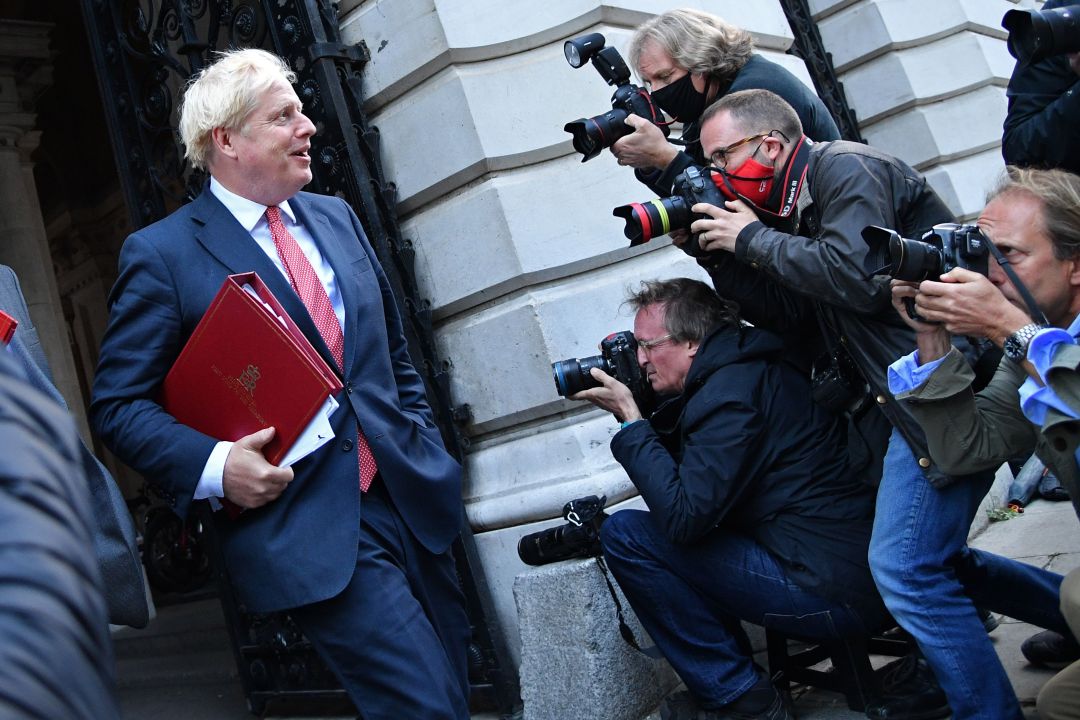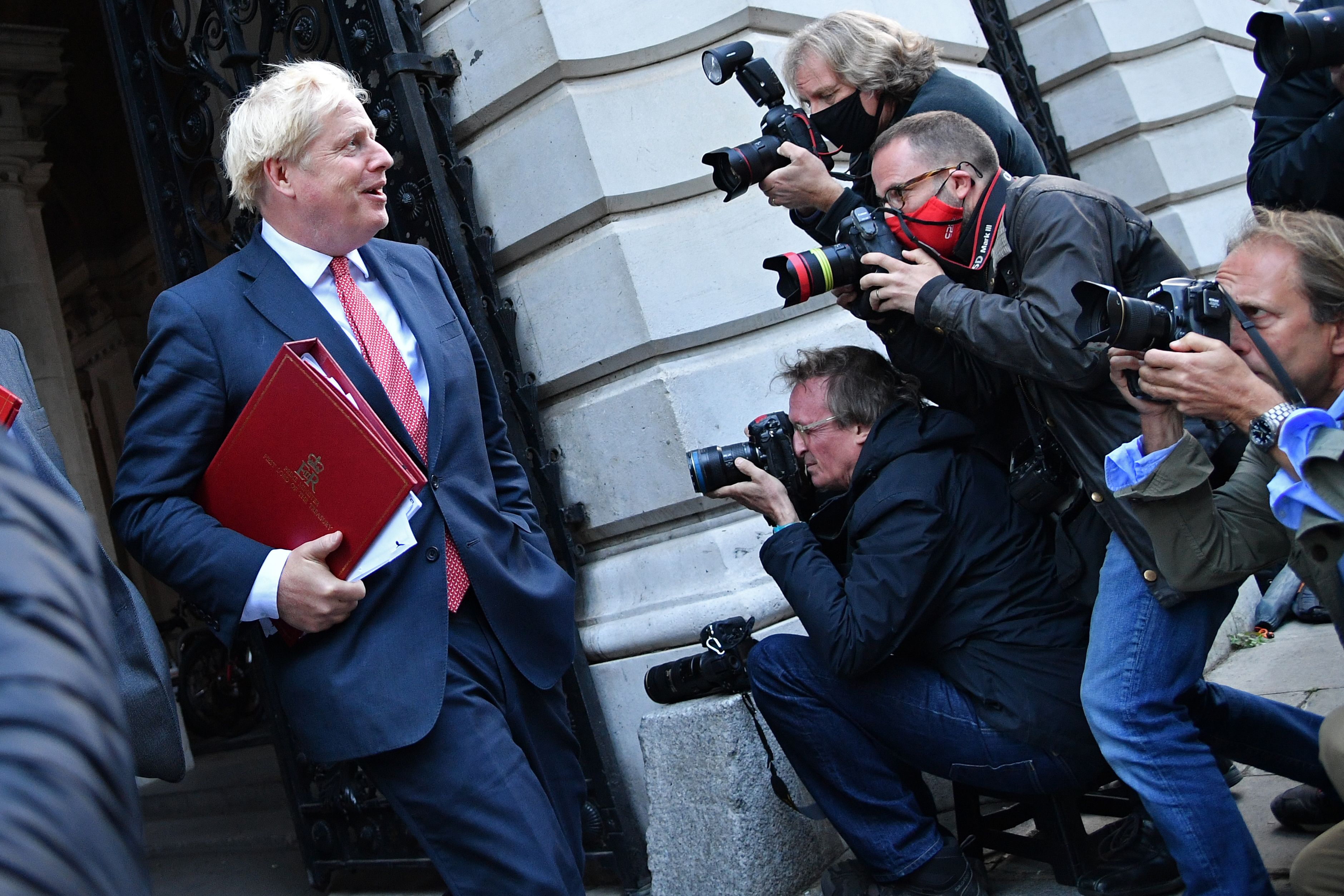When Boris Johnson addressed MPs on Wednesday, the hope in government was that the Prime Minister’s multiple appearances would rally the troops. First at PMQs, then before the 2019 intake, before addressing the 1922 committee of Tory backbenchers. With MPs returning from the summer holidays fed up after a string of policy U-turns and constituent complaints, many needed a jolt of optimism ahead of a tricky few months.
His appearance at Prime Minister’s Questions did the opposite. ‘He was all over the place,’ sighs one veteran MP. Several Tory MPs privately complain that it was discourteous of Johnson to turn up at the despatch box having not done his homework. And while Boris Johnson’s appearance with the Chancellor before the new intake went more smoothly, it was his appearance at the 1922 that was most revealing.
Johnson told MPs of his hope that things will return to normal by Christmas. With the room busy and little social distancing being practised, according to one attendee, Johnson observed attendees were ‘cheek by jowel’ – going on to say he wanted this to be the reality by December. He acknowledged recent government U-turns – but insisted that sometimes one has to jink a bit in order to go in a straight line. ‘It wasn’t a barnstormer but it did reassure a few of us,’ says one attendee.
It was the question and answer session that ought to give No. 10 pause for thought. While the questions were largely constructive, there were a couple that veered on the negative side. One MP put to Johnson that he was a prisoner in 10 Downing Street – with his aides leading rather than him. Johnson brushed off the suggestion – focusing on a charm offensive in which he suggested he wanted to hug his colleagues. A Conservative MP from the 2015 intake asked a question relating to how No. 10 interacts with MPs. He put to the Prime Minister that MPs can be made to feel like patients in No. 10’s hospital – the idea being that while No. 10 felt obliged to deal with them, they ultimately would rather they weren’t there. Johnson attempted to sooth these concerns by responding that MPs are not the patients, they are the doctors, so they have an important role to play.
It touches, however, on a wider concern in the party. While MPs have long complained that Downing Street has a party management problem, it is now acknowledged as an issue in No. 10. Every day there are visits to No. 10 and meetings. But one complaint that remains is that visiting MPs are rarely given things to do – tasks that would make them feel as though they are part of the team rather than a problem to be dealt with. Johnson and his colleagues would do well to work out how to make these individuals feel like doctors rather than patients in the coming months.








Comments